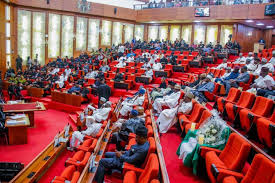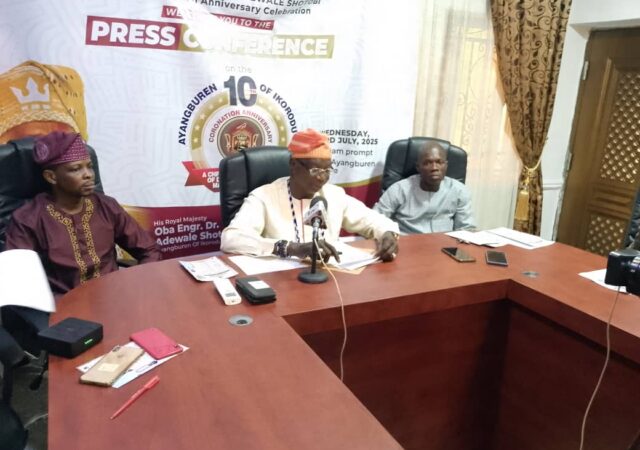Recriminations were thrown around once again with the reintroduction of the National Water Resources Bill at the National Assembly penultimate week. So much has been said and written about the bill with a lot of angst, sentiments and unbridled opposition to the bill. But is the bill in itself so outrageous?
Professor Lanre Fagbohun, an expert in Environmental Law and Former Head of the Environmental Law Research Institute (ELRI) takes a critical look at the bill.
Introduction
Few days back, the Committee on Water Resources of the House of Representatives reintroduced the National Water Resources Bill for consideration by the House. The reintroduction triggered negative reactions by some stakeholders who are vehemently opposed to the passage of same. It would be recalled that the Bill was earlier presented in July 2020, but, had to be withdrawn as a result of concerns by sub-national stakeholders. The major concern raised is that it has a tendency to undermine the powers of respective State Houses of Assembly in Nigeria.
What are the objections?
The position of the Governors’ Forum at the time is comprehensive on what the issues were. Among others, the Governors’ Forum noted that the Bill sought to grant unfettered powers to the Federal Government by totally centralizing the rights and control over all water resources in the country on the Federal Government. According to the Forum, the consequence of passing the Bill will be the deepening and unconstitutional entrenchment of the powers of the Federal Government over water resources and, indirectly, over use of land in Nigeria.
The need to meet the major concerns of the different stakeholders prompted the Federal Ministry of Water Resources to put together an independent team of experts to provide an assessment of the provisions of the Bill against the backdrop of implications for relevant constitutional provisions and State powers; contemporary developments and initiatives for water and environmental governance at both national and global scales; and impact on existing commitments of Nigeria under relevant international agreements. I was a part of that team, and thus, in a well-placed position to give some clarifications. What is obvious is that the stakeholders who are currently opposing the Bill on the basis of the above objections have clearly not taken time to read the revised version of the Bill. The current Bill has removed all ambiguities in connection with relevant constitutional provisions and supposed usurpation of State powers.
Objective of the Bill
Water resources governance is intricately linked with climate change impacts and adaptation in Nigeria. The country’s Nationally Determined Contributions 2021 indicates some of the ways in which climate change affects water stress, flooding and drought in various parts of the country. It further recognises that improved water supply and sanitation are important for addressing climate change–related shocks and resulting negative impacts on the economy and society. The core objective of the Bill, therefore, is to ensure that the nation’s inter-state water resources are protected, used, developed, conserved, managed and controlled in ways which take into account amongst other factors citizens’ right of access to safe water and basic sanitation; meeting the basic human needs of present and future generations; promoting equitable and affordable access to water and reducing poverty. It should be stressed that the Bill applies to inter-state waters alone.

Process of Review of the Bill and its Outcome
In conducting the review that resulted in the current Bill before the House, we were mindful that no two countries share the same constitutional and political dynamic, nor the same geographical, hydrological, hydrogeological and other features as to warrant a wholesale transplant of sorts. Second, we recognised that the Bill must pass constitutional compliance test— that is, respect delineated constitutional powers— in order to accomplish its objectives. In this respect, aside of allowing ourselves to be informed by paradigm policy instruments such as the National Water Resources Policy and cutting-edge opinion on Integrated Water Resources Management (IWRM), we equally leveraged on a body of case law that has espoused on what constitutes federal and state waters in Nigeria, constitutional power over intra-inland waterways, and State power to legislate on groundwater. Finally, the review process also took due cognizance of the implications which Nigeria’s status as a dualist state has on the implementation of the country’s treaty obligations.
The power of the National Assembly to legislate over water resources is directly derived form item 64 of the Exclusive Legislative List under Part 1 of the Second Schedule to the1999 Constitution (as amended). Item 64 refers to the power of the National Assembly to make laws relating to “Water from such sources as may be declared by the National Assembly to be sources affecting more than one State”. Clearly, it is only in relation to bodies of water that run across more than one State (inter-state waters) that can fall under the governance purview of the National Assembly. Waters within the boundaries of the States, as they are not mentioned and covered in both the Exclusive Legislative List and Concurrent Legislative List, become residual matters that are within the sole legislative competence of the States. Section 4 (7) of the Constitution is very clear on this. The review team was deliberate and intentional in clearly delineating the scope of powers along settled constitutional authority in order to avoid unwarranted tension and speculation.
Beyond its constitutional ramification, the Bill is also an omnibus and consolidating document. It amalgamates several legislation relating to water resources and governance; creates associated Agencies, Authorities, Offices and Institutions; and spells out elaborate administrative details and interagency collaboration at federal and state levels. A careful and calm reading of the revised Bill will reveal the following:
(i) The scope of the Bill has been unequivocally clarified to ensure respect for delineated constitutional powers. Specifically, power of State as stakeholders are clearly saved;
(ii) There are checks and balances to restrict unfettered discretion;
(iii) Safeguards have been put in place to avoid excessive political interference in the implementation of provisions of the Bill;
(iv) The Bill has been aligned with the National Action Plan on Gender and Climate Change for Nigeria, and also created opportunity to leverage traditional knowledge of indigenous and local communities relating to water resources and conservation; and
(v) Robust provisions have been put in place to encourage institutional synergy and reduce overlaps and potential tensions through consultations and periodic stocktaking by all agencies created under the Bill. It commendably entrenches inter-ministerial and interagency collaborations.
Conclusion
With Nigeria’s agriculture and food production taking on a projected industrial intensity, and the need for legislative initiatives on water to mainstream considerations for the environment (including climate change), the time for a Bill of this nature is now.
By Professor Lanre Fagbohun.








Can you be more specific about the content of your article? After reading it, I still have some doubts. Hope you can help me.
Thanks for sharing. I read many of your blog posts, cool, your blog is very good.